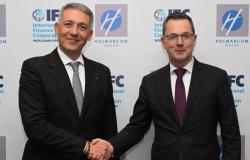Ziguinchor, Dec 18 (APS) – Senegal is doing generally well in terms of the protection of human rights, even if there is still a lot of effort to be made in various areas, said Wednesday in Cap Skirring ( Ziguinchor, south), the representative of the regional office for West Africa of the United Nations High Commissioner for Human Rights, Ayéda Robert Kotchani.
“When it comes to human rights, no country is an absolute champion. In Senegal, as in all democratic countries, there is strong progress that we encourage. But, there are areas where we think efforts need to be made. There are things to perfect,” he said.
He was speaking on the sidelines of a capacity building session for magistrates and lawyers from the appeal courts of Ziguinchor and Tambacounda.
This training session, which opened Wednesday in Cap-Skirring, in the Ziguinchor region, focuses on the theme: “The applicability of international human rights standards at the national level”.
“At the level of our office, we will continue to support States in the promotion of human rights, through government institutions, such as the National Human Rights Commission but also the National Observatory of Places of Deprivation freedoms,” promised Mr. Kotchani.
The head of the West Africa office of the United Nations High Commissioner for Human Rights indicates that in Senegal, “the major challenges mainly concern childhood, an area marked by the absence of a code, such as text of supervision”.
He pointed out, for example, “the low schooling rate observed in several places in the country”.
“In certain regions of Senegal, this schooling rate still remains very low. It’s the same thing for medical care which poses a problem,” he said.
“We have seen tremendous efforts. For example, we have the status of the National Human Rights Commission of Senegal, a law for which was passed last September,” nevertheless welcomed Ayé Robert Kotchani.
He recommends the installation of regional branches of the National Human Rights Commission.
To successfully meet the challenges linked to the effectiveness of human rights, the director of human rights at the Ministry of Justice, Julien Ngane Ndour, stressed the need to offer continuing training to magistrates “to enable them to better apply international standards internally.”

“International standards are put in place for litigants. Therefore, we must always offer capacity building sessions to magistrates for better application of international standards and treaties,” he recommended.
The Attorney General at the Ziguinchor Court of Appeal, Saliou Mbaye, explained that this meeting in Cap-Skirring “comes at the right time, especially in a context where magistrates are called upon to apply international standards alongside legal standards. internal “.
“This activity will allow them, with the experts, to find solutions and good practices to ensure that the litigant always finds what he or she is looking for,” added Saliou Mbaye.

MNF/ASG/MTN





